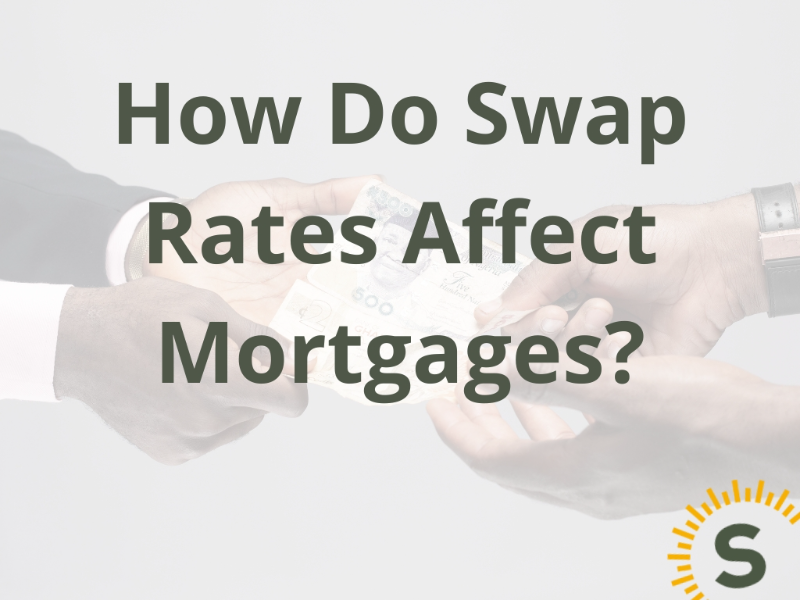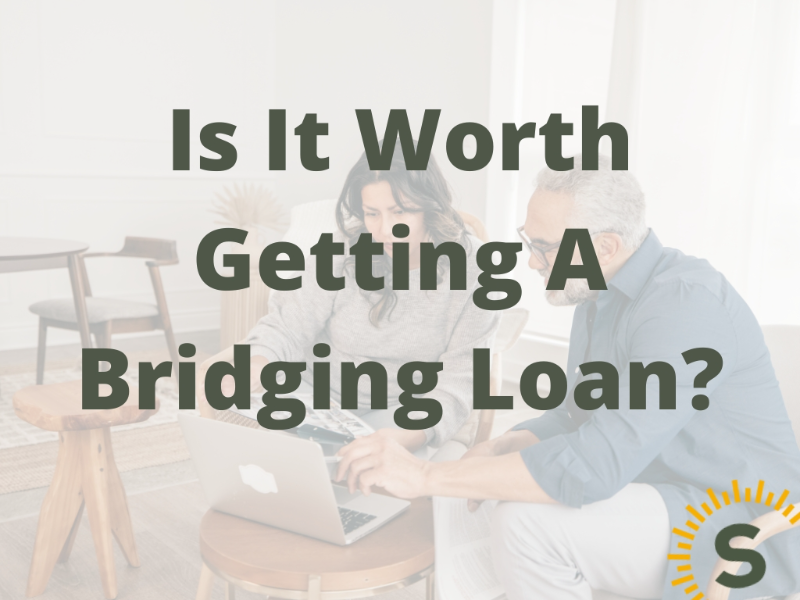
Just because you've retired doesn't mean you don't have financing needs. Actually, now you have more time on your hands, you might finally be getting around to getting started with some of those larger jobs you've put off. The banks aren't too keen to lend on retirement income. However, there may be an alternative...a bridging loan. So, can you get a bridging loan if you're retired?
In this insight, we answer the question, explaining what you need to be aware of, how to increase your chances of acceptance, and how to find an adviser to get the ball rolling for you.
Yes, you can get a bridging loan if you're retired. The strength of your application will depend on your exit strategy. A bridging loan may be a suitable alternative to a mortgage if you have means to repay the loan other than your income. e.g the sale of a house.
Bridging loans are often used by retired people who need short-term finance to help them with their retirement plans and other expenses. However bridging loans can also be used for many other reasons, such as property developments, downsizing, and cash-flow resolution.
As a retiree, there are some important factors to consider:
Lenders will assess your ability to repay the loan. If you're retired, your income may come from various sources such as a pension, investments, or rental income. Lenders will evaluate your income to ensure you can meet the repayments.
Lenders often have a maximum LTV ratio, which is the percentage of the property's value that they are willing to lend. If you have a substantial amount of equity in your existing property, it may be easier to secure a bridging loan.
Lenders will want to know how you plan to repay the bridging loan when it matures. Common exit strategies include selling your existing property, refinancing with a traditional mortgage, or using other funds.
Your credit history and credit score will also play a role in the lender's decision. A good credit history can improve your chances of approval.
Bridging loans do not always require a property to be involved. But, if there is, the lender will typically require a valuation of the properties involved to determine the loan amount.
Bridging loans often come with higher interest rates and fees compared to traditional mortgages. Make sure you understand the cost structure before proceeding.
Increasing your chances of acceptance for a bridging loan when you're retired involves careful planning, preparation, and addressing the concerns of lenders. Here are some steps to improve your chances of getting approved:
Having a well-documented and viable exit strategy is crucial. This might include plans to sell an existing property, secure a traditional mortgage, or access funds from another source to repay the bridging loan.
Some examples of clear and viable exit strategies for a bridging loan:
You plan to sell your current home within a specified timeframe, and you have a signed sales agreement in place. The proceeds from the sale will be used to repay the bridging loan.
You intend to secure a traditional mortgage on the new property you're purchasing with the bridging loan. You have pre-approval or a conditional mortgage offer from a lender, and the mortgage funds will be used to repay the bridging loan.
You have investments, such as stocks, bonds, or a retirement account, that you can liquidate to repay the bridging loan once your existing property is sold or when the investments mature.
You plan to downsize your living arrangements by purchasing a smaller or less expensive property. The surplus funds from the sale of your current home will be used to repay the bridging loan, and the downsized property may require no further financing.
If you own rental properties, you can use the rental income generated from these properties to cover the interest payments on the bridging loan until you sell your current home or secure other financing.
You have valuable assets, such as a valuable art collection, antiques, or a valuable vehicle, that you can sell to repay the bridging loan. This could be especially relevant if you have valuable assets that are not directly tied to your real estate holdings.
Your exit strategy may involve a combination of the above methods. For example, you might initially use investment funds to cover the interest payments while you work on securing a traditional mortgage for the long-term repayment.
For some lenders, there is no maximum age when looking for a bridging loan. The loans are individually underwritten and take into account your repayment methods as well as individual circumstances. For that reason, a bridging loan is a great alternative to a mortgage for short-term funding.
Yes, it is possible for an 80 year old to get a bridging loan as age is not such an important factor when applying. Your means of repayment (exit strategy) will be considered more important when assessing your application.
Unlike traditional loans, bridging loans rely less on your income as a determining factor for approval. This is because the repayment method for bridging loans typically doesn't involve monthly payments, making your income less critical in the application process.
Bridging loans are versatile and individually assessed, making them a potentially great option for retirees facing specific financial needs or property-related transitions. However, bridging loans are not suitable for everyone, and retirees should carefully evaluate whether they are the right option for their circumstances. If a bridging loan doesn't align with their financial plan or needs, another option to consider is equity release.
To give yourself the best chance of acceptance for a bridging loan, it's a good idea to speak to a specialist bridging loan adviser. Sunny Avenue specialises in helping people find the best adviser for their circumstances. To start the conversation around your bridging loan options, complete our fact find and we will put you in contact with the best adviser for you, right away.

Stuart is an expert in Property, Money, Banking & Finance, having worked in retail and investment banking for 10+ years before founding Sunny Avenue. Stuart has spent his career studying finance. He holds qualifications in financial studies, mortgage advice & practice, banking operations, dealing & financial markets, derivatives, securities & investments.
 No minimum
No minimum  No obligation consultation
No obligation consultation
 No minimum
No minimum  Initial or Ongoing Consultation Fees
Initial or Ongoing Consultation Fees
 London, Greater London
London, Greater London No obligation consultation
No obligation consultation
 No minimum
No minimum  Initial fee free consultation
Initial fee free consultation
 No minimum
No minimum  No obligation consultation
No obligation consultation
 No minimum
No minimum  No obligation consultation
No obligation consultation
 No minimum
No minimum  No obligation consultation
No obligation consultation
 No minimum
No minimum  Initial fee free consultation
Initial fee free consultation
 No minimum
No minimum  No obligation consultation
No obligation consultation
 No minimum
No minimum  Initial fee free consultation
Initial fee free consultation
 No minimum
No minimum  Initial or Ongoing Consultation Fees
Initial or Ongoing Consultation Fees
 No minimum
No minimum  Initial fee free consultation
Initial fee free consultation
 No minimum
No minimum  Free Consultations
Free Consultations
 £51,000+
£51,000+  Sheffield, South Yorkshire
Sheffield, South Yorkshire No obligation consultation
No obligation consultation
 No minimum
No minimum  Newcastle-under-Lyme, Staffordshire
Newcastle-under-Lyme, Staffordshire Free Consultations
Free Consultations
 No minimum
No minimum  Free Consultations
Free Consultations
 No minimum
No minimum  No obligation consultation
No obligation consultation
 No minimum
No minimum  Leyland, Lancashire
Leyland, Lancashire No obligation consultation
No obligation consultation
 No minimum
No minimum  No obligation consultation
No obligation consultation
 No minimum
No minimum  Free Consultations
Free Consultations
 No minimum
No minimum  No obligation consultation
No obligation consultation
 No minimum
No minimum  Free Consultations
Free Consultations
 No minimum
No minimum  Free Consultations
Free Consultations
 No minimum
No minimum  Coatbridge, Lanarkshire
Coatbridge, Lanarkshire Initial or Ongoing Consultation Fees
Initial or Ongoing Consultation Fees
 £21,000 +
£21,000 +  Initial fee free consultation
Initial fee free consultation





Our website offers information about financial products such as investing, savings, equity release, mortgages, and insurance. None of the information on Sunny Avenue constitutes personal advice. Sunny Avenue does not offer any of these services directly and we only act as a directory service to connect you to the experts. If you require further information to proceed you will need to request advice, for example from the financial advisers listed. If you decide to invest, read the important investment notes provided first, decide how to proceed on your own basis, and remember that investments can go up and down in value, so you could get back less than you put in.
Think carefully before securing debts against your home. A mortgage is a loan secured on your home, which you could lose if you do not keep up your mortgage payments. Check that any mortgage will meet your needs if you want to move or sell your home or you want your family to inherit it. If you are in any doubt, seek independent advice.